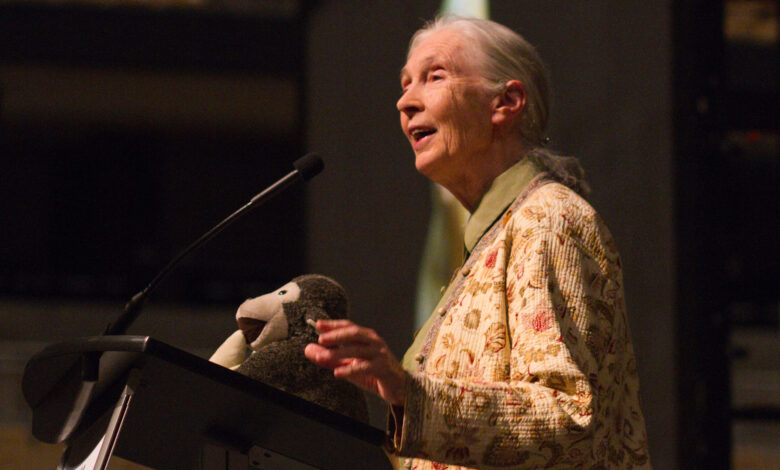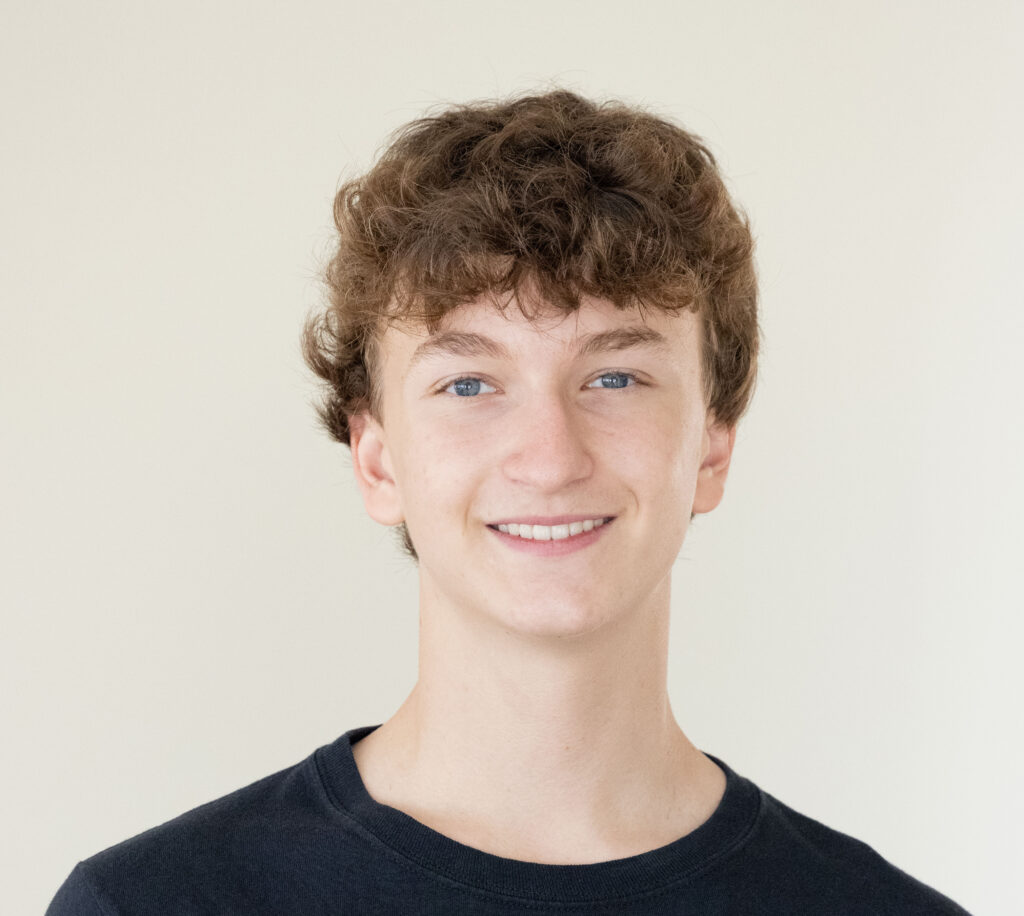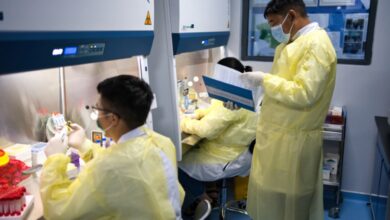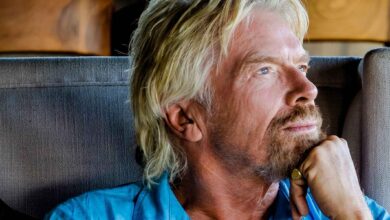How do we say goodbye? Jane Goodall’s legacy of hope

By Will Charouhis
Recently, I had the once-in-a-lifetime opportunity to listen as Dr. Jane Goodall regaled a capacity crowd with her life story. The environmental icon of our time, United Nations Messenger of Peace and founder of the Jane Goodall Institute, she transformed our understanding of the animal kingdom through her groundbreaking research beginning 65 years ago in Gombe, Tanzania.
Growing up in the United Kingdom, Jane dreamed of studying animals in Africa, an unlikely path for single women in 1960. After talking her way into a secretarial job with famed archeologist Louis Leakey, she pushed to join him in his field research in Tanzania. There, at age 26, Jane discovered that chimpanzees have similar social behaviors to humans. Though her claim that animals have feelings was initially dismissed, her jargon-free research was eventually widely accepted, forever transforming human understanding of our relationship with the rest of the animal kingdom.
On stage, Jane was funny, frank and undeniably authentic. Painting pictures with her words, she’d transport her audiences back to the astonishing Gombe forest – to a time when Tanzania’s night sky was smog-free and filled with stars, and hope seemed boundless. And to a moment where one girl with a dream and a discovery changed the world.
But in 1977, inhumane animal research and animal trafficking compelled Dr. Goodall to transition from research to activism. She founded the Jane Goodall Institute, advocating 300 days a year across the globe for animal rights, conservation and reforestation.
In 1991, when youth gathered under Gombe’s night sky on her camp’s wooden porch, expressing how powerless they felt against the problems in the world around them, Jane offered her enduring message: “It is within our power and our will to create change.” And from that, the Roots & Shoots program was born, empowering youth to take action in our communities to better the world around us.
Her program, now 97 countries and more than 63,000 youth strong, has created a path for her ideals to live on. Since then, millions of youth worldwide have taken on her challenge of making the world a better place. Her life’s work stands as a testament that “the youth are not only the future – they are the present – and they are changing the world.”
Unafraid to challenge her audiences, Jane often asked: “How is it that the creature with the most extraordinary intellect ever is destroying its only home?”
With her quiet voice, her strong words would boom out: “Unending economic growth will collapse society.” In those six words, she reminded us that continued population explosion, industrialization and materialism has brought us a long way from the natural world she cherished in her youth.
But Jane would end her talks with what she did best: She gave us hope. As my last evening with Jane closed down she invited a small group of youth to sit with her, reminiscent of the days on her front porch in Gombe. Cross-legged on the floor and strewn across stuffed sofas, we shared our fears and hopes for the planet. Recalling the incredible beauty of the Tanzanian night sky, she turned off the lights, called us by name and listened. We didn’t solve the climate crisis or reverse the ecological collapse happening around us. But as we talked, Jane’s message resonated soundly: “We each have the power to make a difference. It is up to us to choose what difference we want to make in this world.”
Jane Goodall graced us with her story and her life. She was a global icon, spreading hope and turning it into meaningful positive impact to create a better world for people, other animals and the planet we share. Her story will always represent the promise of change for the better that exists in perseverance and in science.
The silence is deafening now, but Jane’s words ring in my ears: “If you really want something, you’re going to have to work awfully hard and take advantage of every opportunity.”

Live in her footprint.
Ask hard questions.
Stay curious.
Push for answers.
Take action.
Now, please.
Will Charouhis is a 19-year-old environmental changemaker from Miami who attends school at Stanford University. He is the founder of the nonprofit We Are Forces of Nature and serves on the USA Roots & Shoots National Youth Leadership Council for the Goodall Institute, leading the project “One Million Mangroves: Halting Climate Change One Root at a Time.” Banner photo: Jane Goodall speaking in 2014. (Mark Schierbecker, CC BY-SA 4.0, via Wikimedia Commons).
Sign up for The Invading Sea newsletter by visiting here. To support The Invading Sea, click here to make a donation. If you are interested in submitting an opinion piece to The Invading Sea, email Editor Nathan Crabbe at ncrabbe@fau.edu.
Source link




